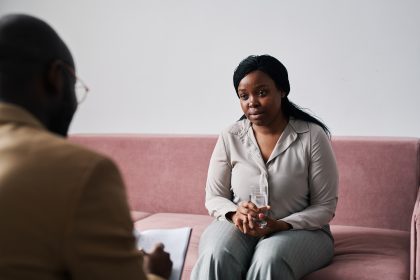You’ve done everything right. Updated your dating profile with photos that show your best angles but still look like you. Crafted a bio that strikes that impossible balance between witty and genuine. Spent countless evenings messaging strangers who seemed promising only to have conversations fizzle out after three days.
And when you finally make it to an actual date, you find yourself sitting across from someone who looked better in their photos, whose jokes don’t land quite right, and whose energy just doesn’t match yours. As you force another smile and take another sip of your overpriced cocktail, you can’t help but wonder — is this ever going to work?
The exhausting cycle no one prepared us for
Let’s be honest about what modern dating really feels like. It’s the excitement of a new match followed by the tedium of small talk. It’s getting your hopes up before a promising date, only to walk home afterward feeling a strange mix of relief it’s over and disappointment that you’re back at square one.
The emotional rollercoaster is relentless. You swing between optimism and despair, between “maybe this time” and “why do I even bother.” One week you’re deleting all your dating apps in frustration, the next you’re downloading them again because what’s the alternative?
You’re not imagining it — dating really has become more complicated. We have more options than ever before, which should make finding someone easier, but instead has created a paradox of choice where we’re always wondering if someone better might be one more swipe away.
When love refuses to follow your timeline
Here’s a truth that’s both frustrating and liberating — timing matters tremendously in love, and much of it is completely outside your control.
Think about the couples you know. How many of them met through carefully orchestrated plans versus random circumstance? Maybe they were both at a friend’s barbecue they almost didn’t attend. Perhaps they matched on an app on the one day he decided to expand his distance range. Or they stood next to each other in a coffee shop during the ten-minute window when both happened to be there.
These seemingly random moments are exactly why dating can feel so maddening. You could create the perfect dating strategy, execute it flawlessly, and still miss connections because of factors you couldn’t possibly account for.
This randomness explains why your friend who “wasn’t even looking” somehow found a perfect partner, while you’ve been strategically dating for years with nothing to show for it. It’s not that they deserved love more or tried harder — they just happened to be in the right place at exactly the right moment, with the right mindset.
The only dating strategy that actually works
If love partially comes down to luck, how do you improve your odds? The answer is both simpler and more challenging than most dating advice suggests.
The key is active participation in life itself. This means creating as many opportunities as possible for serendipity to work its magic. Every date you go on, every new activity you try, every time you accept an invitation instead of staying home — you’re buying another lottery ticket in the game of love.
Tell your friends you’re open to being set up. Join that recreational sports league even if you’re terrible at volleyball. Take your laptop to a different coffee shop. Say yes to the party where you won’t know many people. Each of these actions slightly increases your odds.
This approach requires a delicate balance. You’re creating opportunities for connection while simultaneously accepting that you can’t force outcomes. You’re being intentional about expanding your social circles while understanding that meaningful connection often happens when you least expect it.
Why stepping back might move you forward
Counter to most dating advice, sometimes the best thing you can do is take a complete break. When dating becomes a source of constant stress and disappointment, it’s virtually impossible to show up as your best self.
This isn’t about giving up — it’s about strategic retreat. A period of intentional singlehood gives you space to reconnect with yourself and remember who you are outside of the pursuit of partnership.
Use this time to genuinely reflect on your patterns. Are you consistently attracted to people who are emotionally unavailable? Do you find yourself compromising on values you claim are important? Are you dating with intention or just to avoid being alone?
These questions aren’t comfortable, but they’re crucial. Many of us repeat the same relationship mistakes because we never pause long enough to understand the underlying patterns.
Consider giving yourself a substantial break — a month, a season, or even longer. Delete the apps, tell friends to hold off on setups, and invest that energy elsewhere. This isn’t wasted time in your search for love. In fact, this period of focused self-connection often creates the internal shift necessary to attract different experiences when you return to dating.
Finding peace in the uncertainty
Perhaps the most challenging aspect of dating is accepting that there are no guarantees. You can do everything “right” and still find yourself single longer than you’d like. Or you might meet someone wonderful next week when you least expect it.
This uncertainty triggers our deepest fears. What if I’m unlovable? What if I end up alone? What if I’ve missed my chance? These questions can haunt even the most confident among us.
Finding peace doesn’t mean these fears disappear. It means learning to live alongside them without letting them drive your decisions. It means understanding that a relationship won’t fix your life — it will only complement a life that’s already fulfilling.
The paradox of successful dating is that it often happens when you’ve become comfortable enough with yourself that being single no longer feels like a temporary condition to be endured but simply another way of being. When partnership becomes a preference rather than a necessity, you approach potential connections from a place of genuine choice rather than scarcity and fear.
The courage to keep trying
Despite the frustrations and disappointments, there’s something undeniably brave about continuing to put yourself out there. Every time you show up for a first date, you’re demonstrating a profound optimism — a belief that connection is possible even after evidence to the contrary.
This courage deserves acknowledgment. Dating requires vulnerability in a world that often punishes openness. It asks you to remain hopeful when past experiences give you every reason to become cynical.
Remember that each disappointing date isn’t a failure but a recalibration. Each connection that doesn’t work out teaches you something about what you need in a partner. These lessons aren’t consolation prizes — they’re essential wisdom that brings you closer to recognizing the right relationship when it does appear.
The journey to finding love may be longer and more complicated than you anticipated. It might include detours, false starts, and periods where you need to step away entirely. But through it all, maintaining compassion for yourself and others on the same journey makes the process not just bearable but potentially transformative.
Whether love arrives tomorrow or years from now, you’re growing in your capacity for connection with each step. And that growth — not just the relationship it might eventually lead to — is valuable in itself.
















